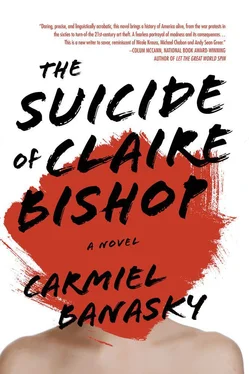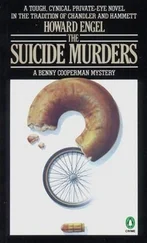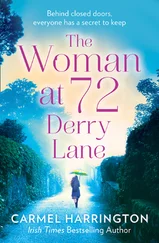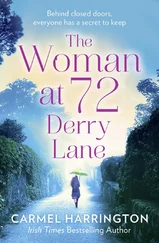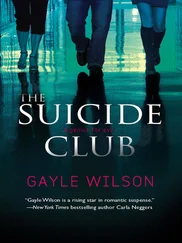Later, when I got out of the hospital, she started coming to my apartment to continue our sessions. I would do anything she told me to. She had me naked a lot of the time. I was cold, sprawled on the kitchen floor, but that didn’t matter. She didn’t care what I looked like down there. She’d handle me, touch me, moving different body parts around as if adjusting objects for a still life. Sometimes she put me in women’s clothing. Or on all fours. There was a cat series — I was the cat. She said I fell asleep once, lying supine on the wood floor beneath my south-facing window, limbs in the air. I was her best model. And her most difficult. She said so.
Nicolette was always listening. She’d ask me questions to get me talking about my family or my job or my reflection men and before I knew it the sun had set and she’d finished another painting. There were therapists and social workers and doctors who asked me questions, too. But no one listened like Nicolette. There was anguish in her listening. There was fear.
And even though she told me very little about herself, I listened too. I knew more of what was going on in that head of hers than anyone. No one will remember my name. No one ever remembers the name of the model or subject. But with her, I was part of a greater whole. A very important link in the infinite chain of her. Without me, it would all fall apart.
In the hospital that day, as she painted my fish-hooked shoulders, she finally looked up and said apologetically, “I think I have to stop.”
“Why?” I said, standing so she’d see how tall I was. Which wasn’t much taller than her.
She stared up at me a long time like I’d spoken another language and she had to translate it into her own, and she swayed back and forth a little, between the two poles of some decision she was silently making. I swayed too. Finally, she said, “I’m afraid I’ll fail to paint you.”
I hold my precious clue in my head as I leave the gallery. The cobblestones can lead me straight to the setting of the painting if I can find out more details about them. And wherever the cobblestones are, there must be another clue to finding Nicolette.
In the hallway, a group of Hasidic men huddle together. They are whispering, heads bent low, prayer fringes swaying at their waists as if to music. They’re the same men I saw at the landmine house, but they don’t recognize me. One of them says, “Something and something we are disappearing.” Obviously, they didn’t say the “somethings.” They stop talking as I approach. But stoic me, I smile, friendly and polite as can be so they don’t guess I have any inkling that they’re in on “something” here. “Killer day out there,” I say to them. They nod and wait for me to pass.
I hurry down the stairs away from them and burst out the metal doors into the bright killer day, and who is there but Jill, the elevator man. Placed there to make me forget the cobblestones. I will not forget the cobblestones. There he is with his parenthetical mouth settling into a smile, leaning against the building with his knee bent up and his foot resting on the wall like a flamingo. Him and his old face smoking in the sun.
He sweeps a hand through his thick manly gray hair in a nervous gesture. It makes me want to say the word lightning ! Luckily he talks first.
“Smells like shit out here.” And the air suddenly feels like a flooded basement.
“Worse,” I say.
“It’s rich people. Rich people shit smells the worst because of all the exotic things they get to eat. Little do they know,” he waggles a finger, “stomachs don’t accept major credit cards.”
“You remember me?” I ask.
“Sure I remember you. Kid with the painting.”
“Not really with it.”
“How about that article? Did you read it?” Jill frowns. “You didn’t read it.”
I don’t tell him I forgot all about the National Geographic he gave me, but somehow he knows. I say I’d been planning on reading it today, I swear, I’m really interested.
He says, “You should be. Those bees, man. Something weird is going on. Bees disappearing all over the world.”
It is weird, I have to admit, especially since the Hasidim were just talking all about disappearing. But then Jill isn’t talking, just smoking, and I want to keep him here, so I look around for something to talk about and point to the small security camera above the door and tell him how they’re filming me all the time. So they’ll have the specimen someday in the future, to study a life like mine, like Buckminster Fuller created a specimen of himself before they had cameras everywhere.
Jill says, “And what’s a life like yours?”
There’s always the moment when I have to decide if I should tell someone I’m sick or not. It’s usually best to play it safe. There’s danger but I don’t know how much or what color level and it all looks gray-scale, like his hair. “Just a normal life,” I say.
He thinks about this for a moment. “We’re all under surveillance, kiddo. Don’t go thinking you’re special.”
Smart, but false. “You think they’re watching now?”
“Not with that one.” He points to the camera above the door. “I know all the security in this building. Half the cameras are fakes. Floors two, four, and five — fakes. The three cameras on floor eight? All real. They got some honest treasures up there. And one real and one fakeroo on the ninth floor with your painting. It’s all up here.” He taps on his skull with his index finger. “What’s your name, kiddo?” When I don’t answer, he says, “I can keep calling you kiddo if you want.”
“West. West,” I tell him.
“West-West. What are your folks, a flock of geese?”
“Then I’d be named South.”
He likes that. Then he asks what’s the deal with me and my painting.
“Mine?” I say.
“You want it, don’t you?”
“No!” I say in my best abashed voice. “I can’t afford it.”
He leans forward. I can feel the heat coming off him. “You could always steal it.”
I laugh, but he stares at me steadily. Then I have a very good idea. “To tell the truth, the woman who painted it, actually, she told me she wants it back.”
He looks surprised. “Why doesn’t she come and get it?”
“Can’t.”
Jill opens his mouth like he’s going to say something but leaves it swinging there in the hot breeze.
“She doesn’t want people to know it’s hers,” I say. “She took her name off it. They won’t let her just have it now.”
If he knows I’m lying, he doesn’t show it. I can be a very good liar when I want to and I was wondering just the other day why I never pursued a career in acting. (Not that I would ever lie to you , because I promised you the truth. All truths.)
“So, if we all want the painting so bad…” he says.
“You want it?”
Jill grunts. “I don’t know what I want. Who does?” Then he stubs his cigarette out on the wall and grins at me. “You ever stole anything?”
I shield my eyes from the sun-charged windows across the street and tell him how once when I was little, I stole a baseball mitt from a neighbor kid, then gave it to my dad as a present.
“He know it was stolen property?”
“Yeah.”
“He didn’t make you give it back?”
I shake my head. “You ever steal anything?”
He licks his fingers, pinches off the end of his cigarette, then slips it into his shirt pocket.
“What I want to know,” he says to a space past my shoulder, “is who would paint something like that? Why would someone paint a person jumping from a bridge and dying? That would fuck a person up to have that painted of you.” He takes in a clunky, orange-level-threatening breath. “That artist must have been a real bitch.”
Читать дальше
